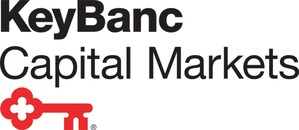
Revolutionizing Recovery: Behavioral Health Tech Recovery Unplugged in 2024
Alex
- 0
Table of Contents
ToggleIntroduction: The Future of Revolutionizing Recovery: Behavioral Health Tech Recovery Unplugged
In a world increasingly dominated by technology, the intersection of Behavioral Health Tech Recovery Unplugged solutions offers new hope for those struggling with mental health challenges. Behavioral health tech has emerged as a vital component of mental health recovery, providing tools and resources that support individuals on their journeys to wellness. One standout in this evolving landscape is Recovery Unplugged, a pioneering organization that harnesses the power of music and technology to enhance recovery outcomes. This article delves into how behavioral health tech, exemplified by Recovery Unplugged, is revolutionizing the way we approach mental health recovery.
Understanding Behavioral Health and Its Challenges
What is Behavioral Health?
Behavioral health encompasses mental health, substance use, and the interactions between the two. It refers to how our behaviors, emotions, and thoughts affect our overall well-being. Conditions such as depression, anxiety, addiction, and other mental health disorders can significantly impact a person’s quality of life. Understanding the intricacies of behavioral health is crucial for addressing the myriad challenges faced by individuals in need of support.
The Stigma Surrounding Mental Health
Despite growing awareness, stigma surrounding mental health and addiction persists. Many individuals hesitate to seek help due to fear of judgment or misunderstanding. This stigma can prevent people from accessing necessary care, exacerbating their struggles and prolonging their suffering. Behavioral health tech seeks to combat this stigma by providing discreet, accessible, and user-friendly resources that empower individuals to take charge of their mental health.
The Role of Education in Reducing Stigma
Education plays a critical role in reducing stigma. By increasing awareness and understanding of behavioral health issues, we can foster empathy and support for those in need. Behavioral health tech initiatives often include educational components aimed at dispelling myths and promoting a more accurate understanding of mental health. For instance, apps and online platforms can provide users with information about common mental health conditions, treatment options, and the importance of seeking help.
The Need for Innovative Solutions
Traditional methods of therapy and treatment are invaluable, yet they often face limitations, including accessibility, affordability, and individual preferences. As a result, there is a growing demand for innovative solutions that can complement existing treatment modalities. Behavioral health tech addresses these challenges by leveraging digital platforms to provide support, resources, and community connection.
Accessibility and Affordability
Accessibility remains a significant barrier to mental health care for many individuals. Geographic limitations, transportation issues, and high costs can deter people from seeking help. Behavioral health tech has the potential to bridge these gaps, offering remote access to therapists, support groups, and educational resources. This shift toward digital solutions can make mental health care more affordable and accessible, empowering individuals to prioritize their well-being.
Recovery Unplugged: A Beacon of Hope
The Mission of Recovery Unplugged
Recovery Unplugged was founded on the principle that music is a powerful tool for healing. By integrating music into the treatment process, the organization aims to create a unique and engaging recovery experience that resonates with individuals struggling with behavioral health challenges. The mission is clear: to help individuals reclaim their lives through innovative therapeutic practices that emphasize the healing power of music.
The Founding Story
The journey of Recovery Unplugged began with a vision to change how we approach addiction and mental health treatment. The founders recognized that traditional models of recovery often lacked creativity and emotional connection. By weaving music into the fabric of treatment, Recovery Unplugged sought to create a more holistic and impactful experience that speaks to the hearts of individuals in recovery.
The Role of Music in Recovery
Research has shown that music can profoundly impact mental health. It has the ability to evoke emotions, reduce stress, and foster a sense of community. For those in recovery, music can serve as a therapeutic outlet, providing an avenue for self-expression and emotional release. Recovery Unplugged capitalizes on these benefits by incorporating music therapy into its treatment programs, allowing individuals to connect with their emotions and experiences in a meaningful way.
How Music Affects the Brain
The effects of music on the brain are well-documented. Listening to music triggers the release of neurotransmitters such as dopamine, which is associated with pleasure and reward. This biochemical response can help alleviate symptoms of anxiety and depression, making music a valuable tool for individuals in recovery. Moreover, music can stimulate memory and promote cognitive function, further enhancing its therapeutic potential.
Comprehensive Treatment Options
Recovery Unplugged offers a range of treatment options, including inpatient and outpatient programs, detox services, and aftercare support. Each program is tailored to meet the unique needs of individuals, ensuring that they receive the most appropriate care for their circumstances. The integration of behavioral health tech into these programs enhances the overall treatment experience.
Inpatient and Outpatient Programs
The inpatient program provides a structured environment where individuals can focus entirely on their recovery. With 24/7 support from trained professionals, clients receive personalized care, including music therapy sessions, group therapy, and individual counseling. The outpatient program, on the other hand, offers flexibility for individuals who may have work or family commitments but still require support. Both programs emphasize the importance of integrating music into the healing process.
Detox Services
For individuals with substance use disorders, detox services are often a critical first step in the recovery journey. Recovery Unplugged provides medically supervised detox programs that ensure clients are safe and comfortable during this challenging phase. The incorporation of music therapy during detox can help soothe anxiety and facilitate emotional processing, making the experience more manageable.
Aftercare Support
Recovery is an ongoing process that extends beyond initial treatment. Recovery Unplugged emphasizes the importance of aftercare support, offering continued access to resources and community connections. This may include alumni programs, ongoing therapy options, and access to support groups. Music continues to play a significant role in aftercare, providing a creative outlet for individuals as they navigate life post-treatment.
Behavioral Health Tech: Transforming the Recovery Landscape
The Digital Revolution in Mental Health
The rise of behavioral health tech represents a digital revolution in the mental health landscape. Apps, online therapy platforms, telehealth services, and digital resources are transforming how individuals access care and support. This shift is particularly important in a post-pandemic world, where many have faced increased mental health challenges and limited access to traditional in-person services.
Telehealth as a Game Changer
Telehealth has emerged as a game changer in behavioral health. It allows individuals to connect with mental health professionals without the need for in-person visits, breaking down geographical barriers and offering flexibility for clients. Teletherapy platforms enable users to schedule sessions at their convenience, making it easier for individuals to seek help and maintain their treatment plans.
Key Components of Behavioral Health Tech
- Teletherapy: Teletherapy platforms allow individuals to connect with licensed therapists from the comfort of their homes. This eliminates geographical barriers and makes mental health support more accessible. Many platforms also offer video, chat, and phone options, catering to different preferences and comfort levels.
- Mental Health Apps: There are numerous apps designed to support mental wellness. These apps can provide mindfulness exercises, mood tracking, and resources for managing anxiety and depression. By offering interactive tools, they empower users to take an active role in their mental health journey.
- Online Support Groups: Virtual support groups offer a safe space for individuals to connect with others who share similar experiences. These platforms foster a sense of community and reduce feelings of isolation. Participants can share their stories, seek advice, and receive encouragement from peers who understand their struggles.
- Data Analytics: Behavioral health tech utilizes data analytics to personalize treatment plans and monitor progress. This data-driven approach can lead to more effective and tailored interventions. By analyzing user interactions, therapists can gain insights into their clients’ needs and adapt treatment strategies accordingly.
How Recovery Unplugged Utilizes Behavioral Health Tech
Recovery Unplugged incorporates various behavioral health tech components to enhance its treatment offerings. For instance, the organization provides access to teletherapy services, enabling individuals to receive support remotely. Additionally, they utilize apps that promote mindfulness and self-care, encouraging clients to engage in healthy coping strategies outside of therapy sessions.
Integrating Technology with Music Therapy
Recovery Unplugged has taken a unique approach by integrating technology with its music therapy programs. For example, clients can access curated playlists through a dedicated app that complements their treatment. These playlists may be designed to evoke specific emotions or facilitate relaxation, providing additional support as individuals navigate their recovery journeys.
Music Therapy: The Heart of Recovery Unplugged
The Science Behind Music Therapy
Music therapy is an evidence-based practice that utilizes music to address emotional, cognitive, and social needs. Studies have shown that music therapy can significantly reduce symptoms of anxiety and depression, improve emotional regulation, and enhance overall well-being. For individuals in recovery, music therapy can serve as a vital tool for processing feelings and fostering resilience.
Research Findings on Music Therapy
Numerous studies have explored the efficacy of music therapy in various settings. For example, a meta-analysis published in the journal Psychology of Music found that music therapy significantly reduced anxiety and depression in individuals with mental health disorders. Additionally, research in Substance Use & Misuse highlighted the positive effects of music therapy on substance use outcomes, demonstrating its potential as an adjunctive treatment for addiction recovery.
Therapeutic Approaches Used at Recovery Unplugged
- Active Music Making: Participants engage in creating music, whether through songwriting, playing instruments, or vocalizing. This active involvement allows individuals to express emotions that may be difficult to articulate verbally. Music creation can foster a sense of agency and ownership over the recovery process.
- Listening to Music: Therapeutic listening sessions involve curated playlists designed to evoke specific emotions and facilitate reflection. This approach encourages individuals to connect with their feelings and experiences through music. By exploring the emotional landscapes of different songs, clients can gain insights into their own emotional states.
- Group Music Sessions: Group sessions foster connection and community among participants. Sharing music and experiences in a supportive environment can enhance feelings of belonging and understanding. Group music-making activities can strengthen social bonds and create a sense of shared purpose among clients.
Real-Life Impact of Music Therapy
Numerous success stories highlight the transformative impact of music therapy at Recovery Unplugged. Clients have reported feeling more connected to their emotions, finding new ways to cope with stress, and developing a greater sense of self-awareness. Music therapy has also fostered a sense of community among participants, reducing feelings of isolation and loneliness.
Testimonials from Clients
Many clients have shared their experiences of how music therapy has positively influenced their recovery journeys. One participant noted that songwriting became a vital outlet for expressing emotions that had long been suppressed. Another client emphasized the power of group music sessions in fostering a sense of camaraderie and support among peers.
Challenges and Limitations of Behavioral Health Tech
Digital Divide
While behavioral health tech offers numerous benefits, it is essential to acknowledge the digital divide that exists. Not everyone has equal access to technology or the internet, which can create disparities in who can benefit from these innovations. Efforts must be made to ensure that underserved populations have access to behavioral health tech solutions.
Addressing Access Disparities
To bridge the digital divide, organizations like Recovery Unplugged are exploring partnerships with community organizations to provide resources and training. Initiatives that promote digital literacy can empower individuals to navigate technology and access available mental health resources.
Privacy and Security Concerns
As with any digital health service, privacy and security are paramount. Individuals may hesitate to engage with behavioral health tech due to concerns about data breaches or confidentiality. Organizations like Recovery Unplugged must prioritize the implementation of robust security measures to protect client information.
Building Trust with Clients
Transparency regarding data usage and privacy policies is crucial in building trust with clients. Recovery Unplugged ensures that clients are informed about how their data is used and the measures in place to protect their information. This commitment to confidentiality fosters a safe environment for individuals to engage in their recovery journeys.
Over-reliance on Technology
While technology can enhance recovery, over-reliance on digital solutions may also pose challenges. It is crucial to strike a balance between tech-based interventions and traditional therapeutic approaches. Face-to-face interactions and human connection remain vital components of effective treatment.
Encouraging Holistic Approaches
Recovery Unplugged emphasizes the importance of a holistic approach to treatment that integrates technology, music, and traditional therapeutic methods. By combining various modalities, individuals can benefit from a comprehensive recovery experience that addresses their unique needs.
Integration with Traditional Treatment
Behavioral health tech should complement, rather than replace, traditional therapeutic methods. Organizations like Recovery Unplugged strive to integrate technology into their treatment programs while maintaining the core values of personalized care and human connection.
Collaborative Care Models
Recovery Unplugged employs collaborative care models that involve a multidisciplinary team of professionals. By integrating mental health specialists, music therapists, and technology experts, they ensure that clients receive well-rounded care that addresses multiple aspects of their recovery.
The Future of Behavioral Health Tech in Recovery
Expanding Access to Care
The future of behavioral health tech lies in expanding access to care for individuals from all backgrounds. As technology continues to evolve, there is a growing potential to reach underserved populations and provide support where it is needed most. Innovations such as mobile clinics, community partnerships, and outreach programs can help bridge the gap.
Telehealth Innovations
As telehealth technology advances, we can expect further improvements in accessibility. New platforms may emerge that cater specifically to underserved communities, offering tailored services and resources that meet their unique needs. Expanding telehealth services will ensure that more individuals have access to the support they need for their mental health.
Personalized Treatment Plans
As behavioral health tech advances, the ability to create personalized treatment plans will improve. Data analytics and artificial intelligence can play a significant role in assessing individual needs and tailoring interventions accordingly. This approach will enhance the efficacy of treatment and lead to better outcomes.
Customization Through Data
By utilizing data collected from apps and online platforms, therapists can gain valuable insights into clients’ progress and preferences. This information allows for ongoing adjustments to treatment plans, ensuring that clients receive care that aligns with their evolving needs.
Community and Peer Support
The importance of community and peer support cannot be overstated. Future developments in behavioral health tech should focus on fostering connections between individuals in recovery. Online platforms, virtual support groups, and community-building apps can facilitate these connections and enhance the recovery experience.
Building Peer Networks
Recovery Unplugged is exploring ways to create peer networks that extend beyond treatment. By establishing online communities where individuals can connect, share experiences, and provide mutual support, they aim to empower clients to build lasting relationships that contribute to their ongoing recovery.
Continuous Innovation
The field of behavioral health tech is continually evolving, driven by research and innovation. As new technologies emerge, organizations like Recovery Unplugged will adapt and integrate these advancements into their treatment offerings. Staying abreast of the latest developments will be essential for maximizing the benefits of behavioral health tech.
Research and Development Initiatives
Recovery Unplugged actively engages in research and development initiatives to explore new approaches to treatment. By collaborating with academic institutions and industry leaders, they aim to contribute to the body of knowledge surrounding behavioral health tech and its impact on recovery outcomes.
Conclusion: Embracing the Future of Behavioral Health
Behavioral health tech is revolutionizing the way we approach mental health recovery. Organizations like Recovery Unplugged are leading the charge by integrating innovative solutions that enhance treatment outcomes and empower individuals on their journeys to wellness. As we embrace this technological evolution, it is crucial to remain mindful of the challenges and limitations that exist, ensuring that all individuals have access to the care and support they need.
A Call to Action
As mental health continues to gain prominence in public discourse, it is vital for individuals, communities, and organizations to advocate for the integration of behavioral health tech into recovery frameworks. By supporting initiatives that prioritize accessibility, innovation, and holistic care, we can contribute to a future where mental health care is equitable and effective for all.
The Path Forward
The future of behavioral health is bright, filled with promise and potential. By harnessing the power of technology, we can break down barriers, reduce stigma, and create a more inclusive and supportive environment for all. As we look ahead, let us commit to championing innovative solutions that prioritize the health and well-being of individuals and communities alike. Together, we can create a world where everyone has the opportunity to thrive.
In conclusion, the journey toward improved behavioral health is ongoing. As we continue to explore and integrate technology into treatment modalities, we can foster an environment that promotes recovery, resilience, and connection. The stories of individuals reclaiming their lives through the support of organizations like Recovery Unplugged serve as a testament to the transformative power of behavioral health tech. Let us embrace this revolution and work together to build a brighter future for mental health recovery. For more details please visit techwebme.com

